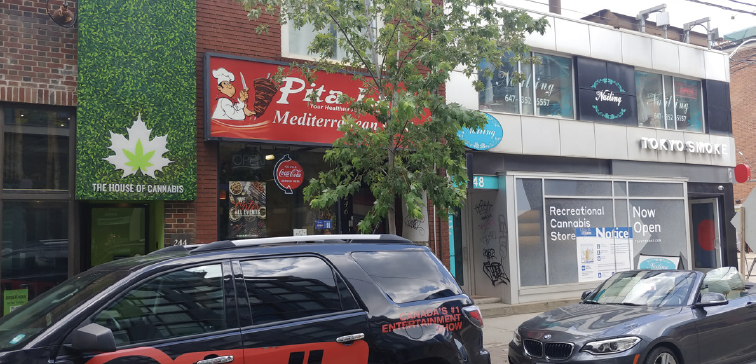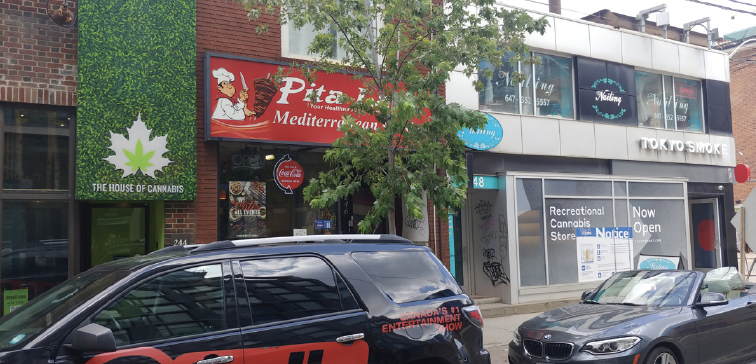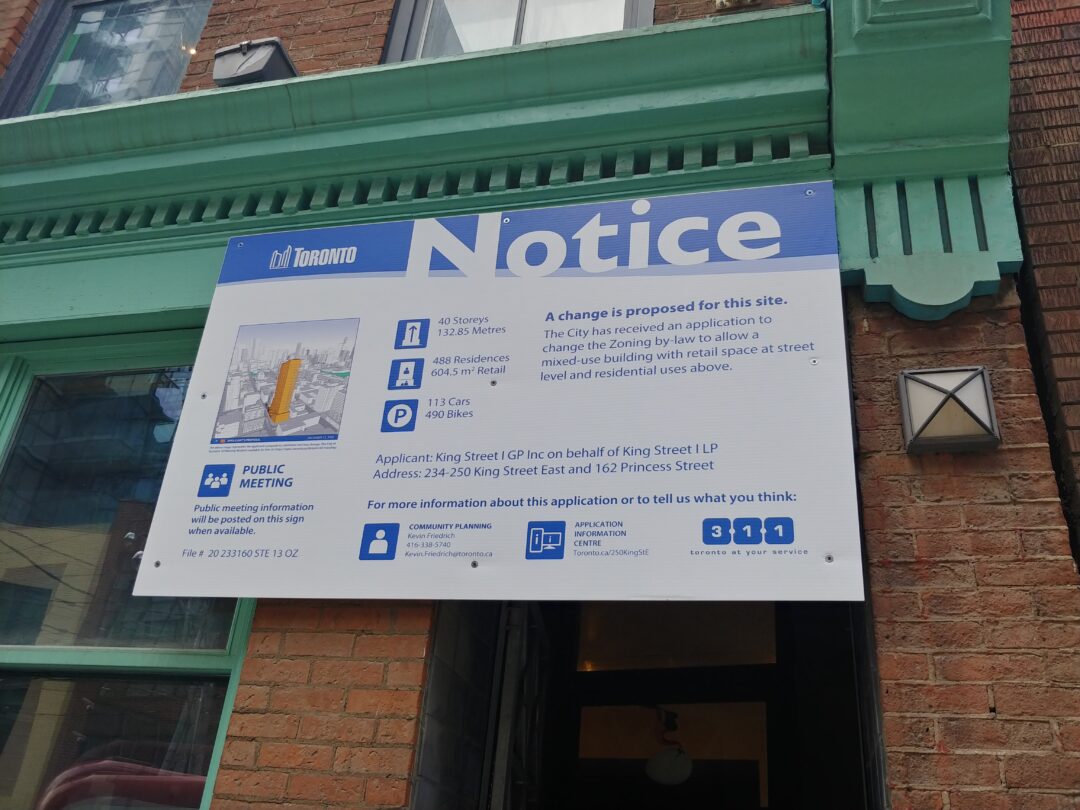
Donald Higney
In Toronto’s downtown east, stores that sell cannabis have proliferated since the drug was legalized in October 2018. The Ontario Cannabis Store locator finds at least 10.
How can each store carve out its own niche when other stores compete in close proximity?
The draw for Tokyo Smoke, at 250 King Street East, is the High Roller Club, a rewards program that offers a 75 percent discount after a certain number of purchases. The Tokyo Smoke franchise operates 57 stores in Ontario, Manitoba and Alberta, including 18 locations in Toronto.
“Canadians enjoy being able to interact with cannabis products and education specialists within a retail brick-and-mortar setting,” said Melissa Gallagher, director of corporate and franchise stores for Canopy Growth, which owns the Tokyo Smoke brand along with others such as BioSteel Sports Nutrition and Ace Valley, another cannabis brand. “And they like having a range of options.”
Another franchise in Toronto is House of Cannabis, on the same block as Tokyo Smoke just east of Sherbourne Street. Like Tokyo Smoke, it emphasizes establishing relationships with customers.
“We formed and trained our team members to listen to the customer to ensure they walk out of the store happy with the purchase,” said Benjamin Tran, House of Cannabis’ president and CEO.
Tran admits that the retail market is becoming saturated, saying the high number of stores nearby has affected original business projections. House of Cannabis has five stores in Ontario with two more opening up in the incoming future.
1922 Cannabis, an independent retailer at 120 Sherbourne Street south of Queen Street, designed its store “to create an open welcoming environment” and hired “capable people we genuinely trusted and believed in,” said Luke Sinnott, general manager of retail operations.
The name 1922 Cannabis originates from the last year cannabis was legal before prohibition.
“Our goal was (and still is) to demystify and destigmatize cannabis, and its use, by reshaping an understanding founded on knowledge and social connection,” said Sinnott.
Sinnott doesn’t think the number of stores in the neighbourhood has hurt business so far due to their loyal customer base and neighbourhood support of small businesses. However, “We do believe the number of stores and their geographical locations will negatively impact retailer’s success — at least until the volume and density of stores balances out,” said Sinnott.




